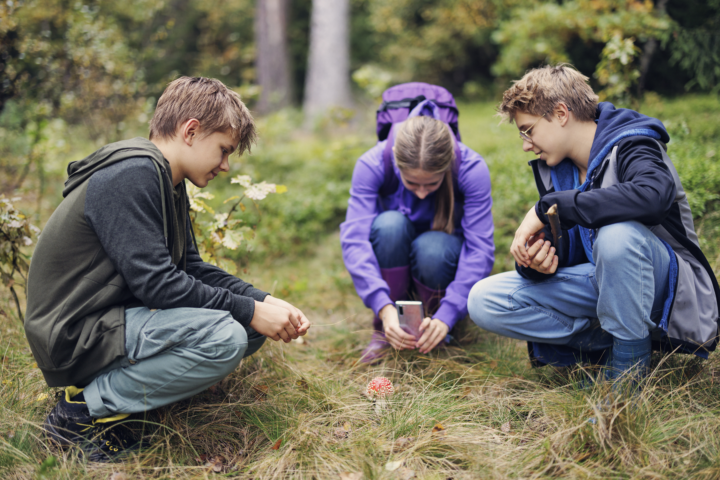School journeys: ideas and practices of new education in Portugal (1890-1960)
I Portugal har skolresor varit kopplade till idén om utbildning som ett instrument för samhällsutveckling. Det visar Inês Félix i sin avhandling.
Inês Félix
Professor Anna Larsson, Umeå universitet Docent Björn Norlin, Umeå universitet
Professor Daniel Tröhler, Wiens universitet
Umeå universitet
2020-05-22
School journeys: ideas and practices of new education in Portugal (1890-1960)
Institutionen för idé- och samhällsstudier
School journeys: ideas and practices of new education in Portugal (1890-1960)
In this dissertation I examine school journeys in secondary education in Portugal between 1890 and 1960, focusing on State regulation, educational ideas and school practice. By bringing together the various parts of a broader discourse on a way of thinking and making schooling, I look at how this active method was regulated, argued and reportedly undertaken with a twofold aim: to expand the knowledge on the history of school journeys, and to contribute to the research on the ideas and practices of educational modernity.
School journeys were an activity that was intended to take the students out of the school in order to observe, study and actively experience historical heritage, industrial processes, natural objects and phenomena, and societal achievements in situ, i.e. all culture related to what was to be seen, thought about and acted upon. Moreover, these journeys were imbued with the desire to produce a metamorphosis from student to citizen by promoting the students’ learning and becoming processes.
The advent of school journeys in Portugal was deeply connected to the aims of New Education and to the idea of education as an instrument of societal renewal and progress of the nation. Their boom in the mid-1910s was accompanied by the proliferation of ideas that ultimately referred to the need to accomplish results. This, in turn, led to the strengthening of the teachers’ role and to the reliance on once perceived traditional forms of teaching and learning in which the students’ engagement was restricted to that of observers, readers, listeners and writers of notes. Although by the 1930s this had already become engrained in the grammar of schooling, it was the meticulous regulations enforced by the recently established dictatorship that crystallised the legal framework, educational ideas and practice of school journeys.
Thus, by taking the particular case of school journeys, I show how ideas of educational modernity became increasingly articulated and blended with longestablished practices, and how learning was placed in relation to learning and becoming, both closely connected to narratives of national progress and belonging. Indeed, activities based on observation, study and experience were connected to knowledge transfer as much as to the production of subjectivities. For this reason, I argue that school journeys were part of a ‘Reason’ that established objective systems to apprehend both individuals and the world, connecting each other by shaping an idea of cultural empowerment and intellectual emancipation through knowledge and identity.
Relaterade länkar

Biologi
 Åk 7–Vux
Åk 7–Vux Hållbar utveckling i förskolan
 Fsk
Fsk 




